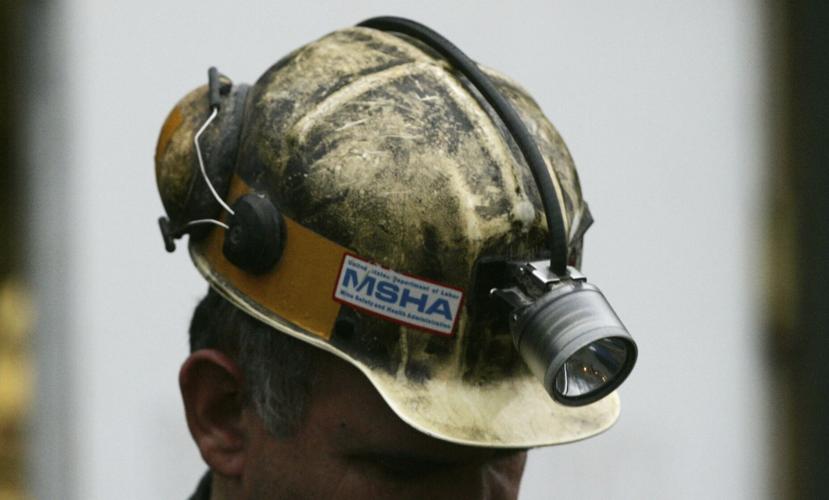The U.S. Department of Labor is aiming to rewrite or repeal more than 60 “obsolete” workplace regulations, ranging from minimum wage requirements for home health care workers and people with disabilities to standards governing exposure to harmful substances.

Lori Chavez-DeRemer
If approved, the wide-ranging changes unveiled this month also would affect working conditions at construction sites and in mines, and limit the government's ability to penalize employers if workers are injured or killed while engaging in inherently risky activities.
The Labor Department says the goal is to reduce costly, burdensome rules imposed under previous administrations, and to deliver on President Donald Trump's commitment to restore American prosperity through deregulation.
Critics say the proposals would put workers at greater risk of harm, with women and members of minority groups bearing a disproportionate impact.
People are also reading…
"People are at very great risk of dying on the job already,” Rebecca Reindel, the AFL-CIO union's occupational safety and health director, said. “This is something that is only going to make the problem worse.”
The proposed changes have several stages to get through before they can take effect, including a public comment period.
Here's a look at a few of the rollbacks under consideration:
No minimum wage for home health care workers
Home health care workers help elderly or medically fragile people by preparing meals, administering medications, assisting with toilet use, accompanying clients to doctor appointments and performing other tasks. Under one of the Labor Department's proposals, an estimated 3.7 million workers employed by home care agencies could be paid below the federal minimum wage — currently $7.25 per hour — and made ineligible for overtime pay if they aren't covered by corresponding state laws.
The proposed rule would reverse changes made in 2013 under former President Barack Obama and revert to a regulatory framework from 1975.Â
Judy Conti, director of government affairs at the National Employment Law Project, said her organization plans to work hard to defeat the proposal. Home health workers are subject to injuries from lifting clients, and "before those (2013) regulations, it was very common for home care workers to work 50, 60 and maybe even more hours a week, without getting any overtime pay,” Conti said.
Others endorse the proposal, including the Independent Women’s Forum, a conservative nonprofit based in Virginia. Women often bear the brunt of family caregiving responsibilities, so making home care more affordable would help women balance work and personal responsibilities, the group's president, Carrie Lukas, said.
“We’re pleased to see the Trump administration moving forward on rolling back some of what we saw as counterproductive micromanaging of relationships that were making it hard for people to get the care they need,” Lukas said.
Protections for migrant farm workers
Last year, the Labor Department finalized rules that provided protections to migrant farmworkers who held H-2A visas. The current administration says most of those rules placed unnecessary and costly requirements on employers.
Under the new proposal, the Labor Department would rescind a requirement for most employer-provided transportation to have seat belts for those agriculture workers.
The department is also proposing to reverse a 2024 rule that protected migrant farmworkers from retaliation for activities such as filing a complaint.
“There’s a long history of retaliation against workers who speak up against abuses in farm work. And with H-2A it’s even worse because the employer can just not renew your visa,” said Lori Johnson, senior attorney at Farmworker Justice.
Michael Marsh, president and CEO of the National Council of Agricultural Employers, applauded the deregulation efforts, saying farmers were hit with thousands of pages of regulations pertaining to migrant farmworkers in recent years.

A miner pauses before taking part in a rescue mission Jan. 3, 2006, in Tallmansville, W.Va.
Mine safety
Several proposals could impact safety procedures for mines. For example, employers have to submit plans for ventilation and preventing roof collapses in coal mines for review by the Labor Department's Mine Safety and Health Administration. Currently, MSHA district managers can require mine operators to take additional steps to improve those plans.
The Labor Department wants to end that authority, saying the current regulations give the district manager the ability to draft and create laws without soliciting comments or action by Congress.
Similarly, the department is proposing to strip district managers of their ability to require changes to mine health and safety training programs.
Limiting OSHA’s reach
The general duty clause allows OSHA to punish employers for unsafe working conditions when there's no specific standard in place to cover a situation.
An OSHA proposal would exclude the agency from applying the clause to prohibit, restrict or penalize employers for “inherently risky professional activities that are intrinsic to professional, athletic, or entertainment occupations.”


















